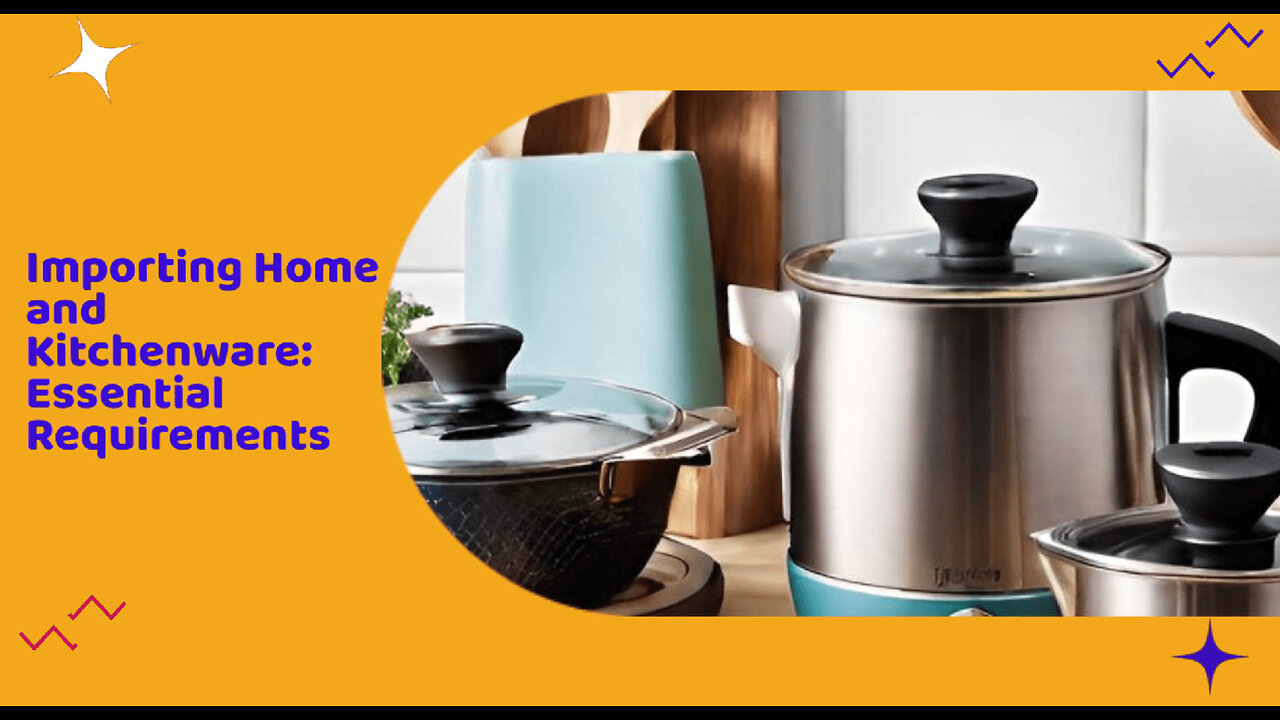Premium Only Content

Title: Navigating the Customs Maze: Importing Home and Kitchenware Products
ISF Checklist || 805-970-7918 || contact@isfchecklist.com || www.isfchecklist.com
Importing home and kitchenware products requires importers to adhere to specific requirements and regulations to ensure safety, compliance, and smooth customs clearance processes. One essential requirement is having a customs bond, which serves as a financial guarantee between the importer and the customs authority. This bond ensures the payment of duties, taxes, and potential penalties, protecting the government's revenue and facilitating trade.
To navigate the complexities of customs procedures, it is highly recommended for importers to engage a licensed customs broker. These professionals possess expertise in customs regulations and can assist with filing necessary documentation, completing customs forms, and ensuring compliance with applicable laws and regulations.
Importers must also fulfill the Importer Security Filing (ISF) requirement. The ISF must be filed at least 24 hours before the shipment is loaded onto a vessel bound for the United States. This filing provides crucial information about the shipment, including details of the parties involved in the import transaction.
Non-compliance with the ISF can result in significant penalties and customs clearance delays, underscoring the importance of accurate and timely filing to avoid complications.
Certain home and kitchenware products may require additional certifications and labeling requirements. For example, electrical appliances must meet safety standards, and food products must comply with labeling regulations. Importers must familiarize themselves with these requirements and ensure their products meet the necessary standards.
Upon arrival at the customs port, home and kitchenware products may undergo physical inspections conducted by customs officials. These inspections aim to ensure compliance with regulations, verify the accuracy of documentation, and prevent the entry of prohibited or restricted items.
Finally, importers must be prepared for the customs clearance process, which involves submitting the required documentation, paying customs duties and fees, and meeting any additional requirements specified by customs authorities. A well-prepared importer, with the assistance of a customs broker, can streamline this process and facilitate the smooth entry of home and kitchenware products into the country.
By understanding and adhering to these regulations, importers can navigate the customs clearance process with ease, avoiding penalties and delays. Stay tuned for our upcoming videos, where we will delve deeper into the world of customs brokerage and international trade. Thank you for watching, and we look forward to your continued support.
#usimportbond #isfcustomsbroker #uscustomsclearing #isfentry
Video Disclaimer Here: This video is purely educational and has no ties with the US government.
0:36 - Customs bond is necessary for financial guarantee between importer and customs
0:59 - Licensed customs broker recommended for navigating complex procedures
1:19 - Importer Security Filing (ISF) required at least 24 hours before shipment loading
-
 25:02
25:02
marcushouse
1 day ago $45.91 earnedStarship Just Exploded 💥 What Went Wrong This Time?!
182K82 -
 12:00
12:00
Silver Dragons
1 day agoBullion Dealer Reveals Best Silver to Buy With $1,000
115K11 -
 12:58
12:58
NinjaGamblers
20 hours ago $15.91 earnedIs This The BEST Way to Win At Roulette? 😲
152K13 -
 1:01:54
1:01:54
CharLee Simons Presents Do Not Talk
3 days agoCALIFORNIA'S DONE!
103K43 -
 7:33
7:33
MudandMunitions
1 day agoUnboxing My FIRST Revolver! Smith & Wesson 442 .38 Special and What’s Coming Next for the Channel
130K16 -
 1:01:05
1:01:05
Trumpet Daily
1 day ago $14.12 earnedGermany Started Two World Wars and Now Wants Nuclear Weapons - Trumpet Daily | Mar. 7, 2025
103K92 -
 57:07
57:07
Stephen Gardner
1 day ago🚨BREAKING: Musk STUNS even Trump with LATEST FRAUD DISCOVERY!!
231K537 -
 2:26:47
2:26:47
FreshandFit
1 day agoRatchet Chick Gets Kicked Out "Gracefully" For THIS...
222K217 -
 2:05:17
2:05:17
TimcastIRL
1 day agoDemocrat ACTBLUE In CHAOS, Theories Over DOGE Cutting SLUSH FUND Go Wild w/Hotep Jesus | Timcast IRL
348K294 -
 1:11:43
1:11:43
Roseanne Barr
1 day ago $86.88 earned"They are all Monsters" | The Roseanne Barr Podcast #89
181K237